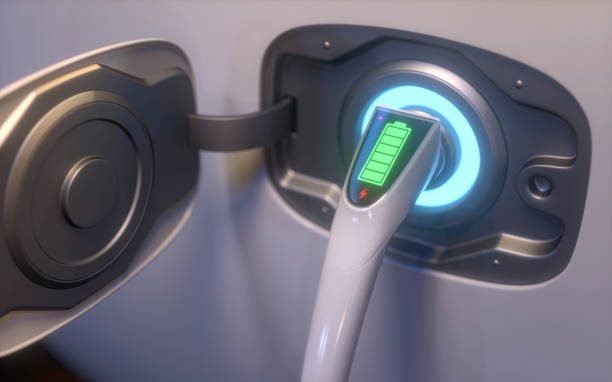How Often Should You Service an Electric Car: A Complete Guide
Table of Contents
Electric vehicles (EVs) are revolutionizing the way we think about transportation, offering a cleaner, more efficient alternative to traditional gasoline-powered cars. But just like their gas-guzzling counterparts, EVs need regular maintenance to keep them running smoothly. So, how often should you service an electric car?
Unlike internal combustion engine (ICE) vehicles, electric cars have fewer moving parts, which generally means fewer things can go wrong. However, this doesn’t mean they are maintenance-free. Regular servicing is crucial to ensure your EV remains efficient, safe, and reliable. From the battery and motor to the brakes and software, each component has specific needs that must be addressed.
Understanding how often to service an electric car can save you time, money, and hassle in the long run. This guide will walk you through the recommended service intervals, essential checks, and services needed to keep your EV in top shape. Whether you’re a new EV owner or considering making the switch, knowing the ins and outs of EV maintenance is key to a hassle-free driving experience.

Understanding Electric Car Maintenance
Electric car maintenance is relatively straightforward compared to traditional vehicles. One of the main reasons for this is the reduced number of moving parts in an electric vehicle. For instance, an EV does not have an engine with numerous parts that require regular oil changes, which is a significant maintenance area for ICE vehicles.
The core components of an electric car that require regular attention include the battery, motor, brakes, tires, and software. The electric car battery is perhaps the most critical component, as it powers the vehicle. Ensuring the battery’s health through regular check-ups and following the manufacturer’s guidelines for cooling system maintenance can prolong its lifespan.
Regenerative braking systems in electric cars also reduce wear on traditional brake components, but regular inspections of the brake pads, fluid, and discs are still necessary. The weight of the battery packs in EVs often means the tires and suspension need more frequent checks compared to lighter ICE vehicles. Maintaining proper tire pressure and alignment is crucial for safety and efficiency.
Lastly, software updates play a vital role in EV maintenance. These updates can enhance vehicle performance, add new features, and improve security, making it essential to keep your EV’s software current. Regular maintenance and timely updates ensure that your electric vehicle remains efficient, safe, and reliable over time.
Recommended Service Intervals for Electric Cars
Knowing the recommended service intervals for your electric car is key to maintaining its performance and longevity. Generally, most EVs require less frequent servicing than traditional gasoline vehicles, but the exact intervals can vary depending on the make and model.
For example, the Tesla Model 3 suggests a service interval of every 12,500 miles or once a year, whichever comes first. This includes checks on the brake fluid, tire rotation, and a multi-point inspection. On the other hand, the Nissan Leaf follows a schedule that includes a more detailed inspection every 18,000 miles. These intervals ensure that critical components such as the battery, brakes, and tires are in good condition.
Hyundai Kona Electric recommends servicing every 10,000 miles, with specific checks on the cooling system and high-voltage components. Similarly, the BMW i3 has a service interval of every 20,000 miles, focusing on both mechanical and electronic systems.
Manufacturers like Volkswagen also have specific service schedules for their electric models like the ID.3 and ID.4, which require the first inspection after two years, followed by annual checks or every 18,000 miles. These intervals are designed to ensure that the vehicle remains in optimal working condition and that any potential issues are identified early.
It’s essential to follow the manufacturer’s recommended service intervals to maintain your EV’s warranty and ensure its longevity. Regular servicing not only keeps your electric car running smoothly but also helps in detecting any potential issues before they become major problems. Always refer to your vehicle’s owner manual for specific maintenance schedules and follow the guidelines provided by the manufacturer.
Essential Checks and Services
Maintaining an electric car involves several essential checks and services, each playing a crucial role in ensuring the vehicle’s longevity and efficiency.
Battery Maintenance: The battery is the heart of your electric car. Regularly checking the battery’s health is crucial. This includes monitoring the cooling system, ensuring it’s functioning correctly to prevent overheating. Many EV batteries come with long warranties, often covering 8 years or 100,000 miles, but routine checks are still necessary to ensure longevity.
Brake System: Electric vehicles primarily use regenerative braking, which reduces wear and tear on traditional brake components. However, it’s still important to regularly inspect brake pads, fluid, and discs. While brake pads might last longer than those in ICE vehicles, they still require periodic checks to ensure they’re in good condition.
Tires and Suspension: Due to the additional weight of the battery packs, EV tires tend to wear out faster than those on traditional vehicles. Regular tire rotation, alignment checks, and maintaining proper tire pressure are essential. Additionally, the suspension system should be inspected for wear and tear, as the added weight can affect the springs and dampers.
Software Updates: Keeping your EV’s software up-to-date is essential for performance and security. Manufacturers often release updates that can improve efficiency, add new features, or enhance security. These updates can often be done over-the-air, but some may require a visit to the dealership.
General Maintenance: Routine checks on lights, windshield wipers, and cabin filters are also important. While these might seem minor, they contribute significantly to the overall safety and comfort of the vehicle. Regular inspections ensure that everything is functioning correctly and any minor issues are addressed promptly.
By focusing on these essential checks and services, you can ensure that your electric car remains in top condition. Regular maintenance not only keeps your EV running smoothly but also helps in detecting potential issues before they become significant problems. Following the manufacturer’s guidelines and staying on top of these routine checks will ensure a long and efficient lifespan for your electric vehicle.
Cost Comparison: EV vs. ICE Maintenance
One of the significant advantages of owning an electric vehicle is the potential savings on maintenance costs. EVs are generally cheaper to maintain than their internal combustion engine (ICE) counterparts, primarily due to the reduced number of moving parts.
A study by Go Ultra Low found that the service and maintenance costs for electric cars can be up to 23 percent lower over a typical three-year, 60,000-mile ownership period. This cost reduction is largely attributed to the absence of components such as oil filters, spark plugs, and complex exhaust systems, which are common in ICE vehicles.
Electric vehicles also benefit from fewer fluid changes. While ICE cars require regular oil changes, EVs do not. Instead, they may need occasional coolant and gearbox lubrication, but these are less frequent and less costly. The regenerative braking system in EVs also means that brake pads and discs wear out much more slowly, further reducing maintenance expenses.
Additionally, the reduced wear and tear on the motor and fewer parts susceptible to failure contribute to lower repair costs. Over time, these savings can add up, making EVs an economically sensible choice.
However, it’s important to note that while routine maintenance costs are lower, some components like the battery can be expensive to replace if they fail outside of warranty. This potential cost should be considered when evaluating the overall savings.
Overall, the cost of servicing an electric car is generally lower than that of maintaining a gasoline vehicle. The simplicity of the electric drivetrain and the fewer moving parts result in fewer potential issues and lower routine maintenance costs, making EV ownership an attractive proposition from a financial perspective.
Tips for Prolonging EV Lifespan
Proper maintenance and care can significantly extend the lifespan of your electric vehicle, ensuring it remains efficient and reliable for years to come. Here are some tips to help you get the most out of your EV:
Follow the Manufacturer’s Maintenance Schedule: Adhering to the recommended service intervals is crucial. Regular inspections and timely maintenance checks help in identifying and addressing potential issues early on, preventing costly repairs down the line.
Optimal Charging Practices: To prolong your EV’s battery life, avoid frequent deep discharges. Instead, aim to keep your battery charge between 20% and 80%. Fast charging is convenient but can cause additional wear on the battery if used excessively. Use fast chargers sparingly and opt for slower, regular charging whenever possible.
Monitor Tire Health: Due to the added weight of the battery packs, EV tires can wear out faster. Regularly check tire pressure and alignment, and rotate the tires as recommended. This not only ensures safety but also enhances the vehicle’s efficiency.
Keep Software Up-to-Date: Regular software updates can improve your EV’s performance, add new features, and enhance security. Manufacturers often release updates that optimize battery usage and overall vehicle efficiency. Keeping your software current is essential for getting the best performance from your EV.
Practice Efficient Driving: Smooth, consistent driving can significantly reduce wear and tear on your EV’s components. Avoid aggressive acceleration and heavy braking to minimize stress on the battery and other parts. Utilizing regenerative braking effectively can also help in extending the lifespan of your brake system.
Regular Cooling System Checks: The battery and motor cooling systems are vital for maintaining optimal performance. Regularly inspect and maintain these systems to prevent overheating and ensure efficient operation.
Proper Storage: If you’re not using your EV for an extended period, ensure it’s stored properly. Keep it in a cool, dry place, and maintain a moderate charge level to prevent battery degradation.
By following these tips, you can maximize the lifespan of your electric vehicle, ensuring it remains a reliable and efficient mode of transportation for many years. Proper maintenance and care are key to enjoying the benefits of EV ownership
FAQs
How often should you service an electric car?
Most electric vehicles need servicing every 12,000 to 18,000 miles or annually, depending on the manufacturer’s recommendation. Regular servicing is crucial to ensure all components, especially the battery and brakes, are in good condition.
What are the main differences in maintaining an EV vs. a gas car?
Electric cars require less frequent maintenance compared to gasoline cars because they have fewer moving parts and no need for oil changes. Key areas for EV maintenance include the battery, brakes, tires, and software updates.
Do electric cars need oil changes?
No, electric cars do not require oil changes. However, they may need occasional coolant for battery systems and lubrication for gearboxes, but these needs are much less frequent than oil changes for gasoline engines.
How do software updates affect EV maintenance?
Regular software updates can enhance performance, add new features, and improve security, reducing the need for certain physical maintenance tasks. Keeping your EV’s software up-to-date ensures it runs efficiently and safely.
What is the cost of servicing an electric car compared to a gasoline car?
Electric car maintenance costs are generally lower due to fewer moving parts and less frequent servicing needs. While some components like the battery can be expensive to replace, routine maintenance typically costs less for EVs compared to gasoline cars.


